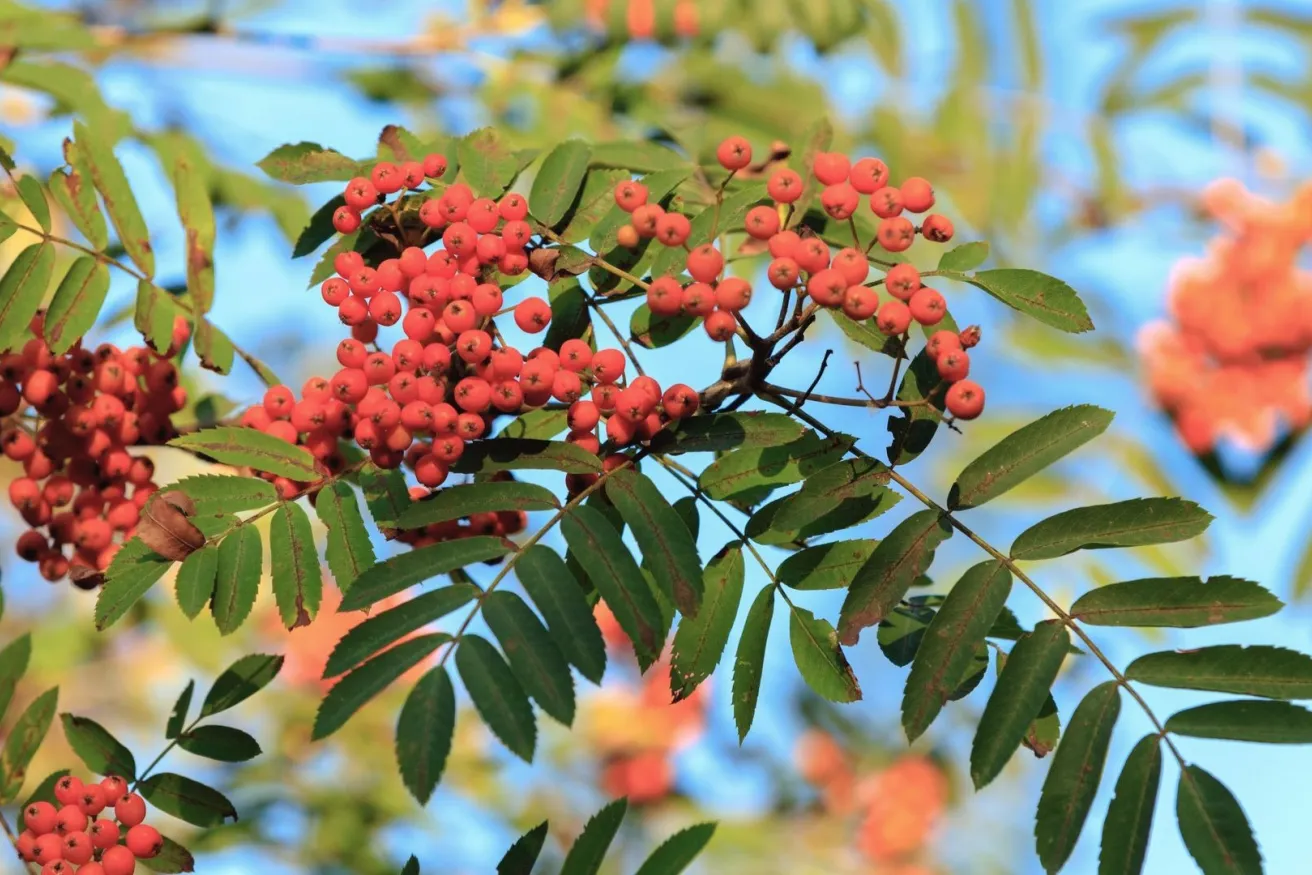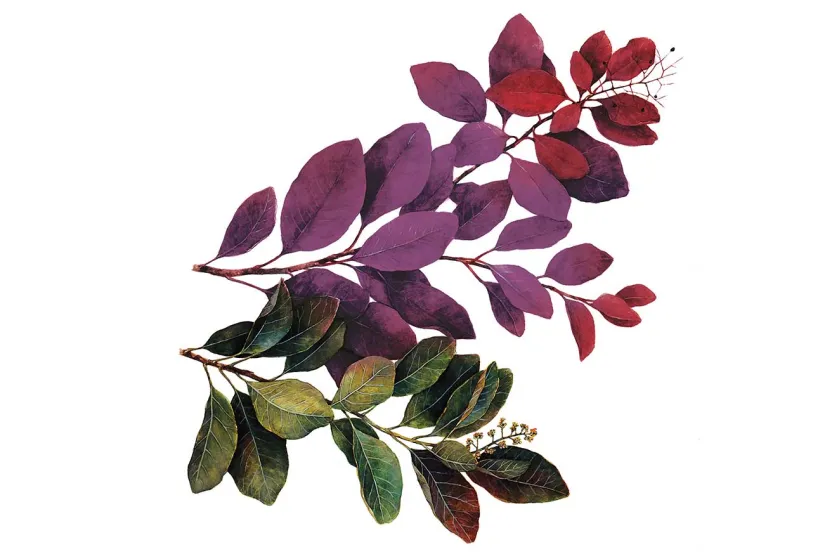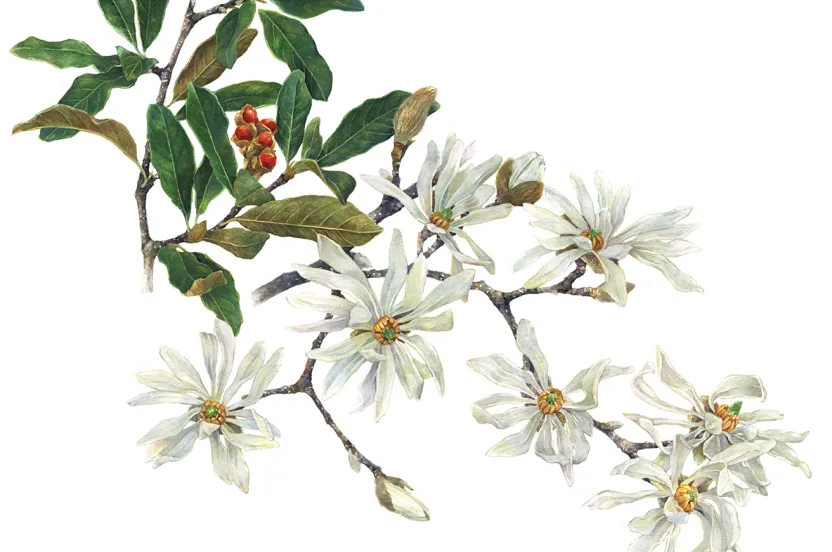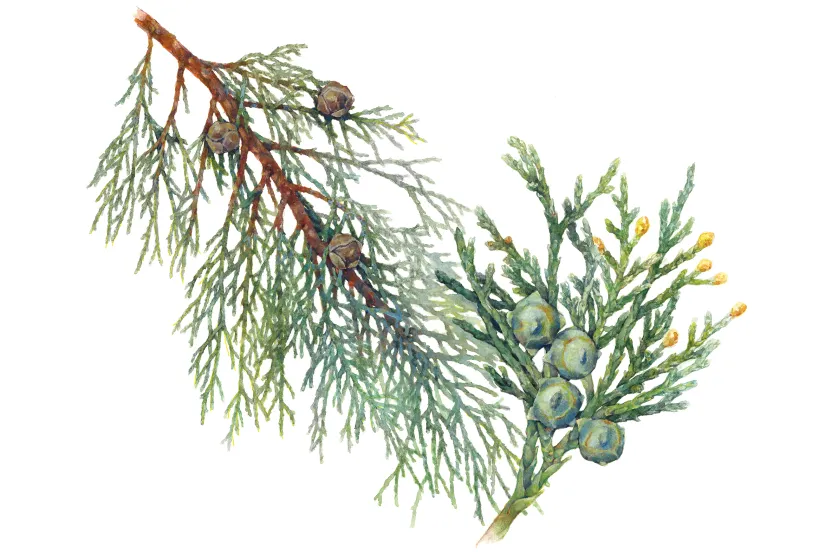Give before midnight on July 31 to double your impact where trees need us most. CHOOSE A PROJECT
Sorbus americana
Looking for a shield to cast off witches and malevolence?
Travel back to 18th century Europe and residents would tell you to use mountainash wood as a guard to keeping witches away. Old folklore tells stories of people planting mountainash trees near the front of their houses and burning twigs to lay outside their home entrance to ward off evil. Some people went as far as making necklaces of ash wood. So, when colonists first moved to America and discovered American mountainash —cousin to the European mountainash — it was said that “the witches who crossed the ocean with the first colonists were soon exorcised by the very air and the sky of the New World.” The tree was said to bring good luck because of its five-pointed star, or pentagram, on the stalk of each berry. Pentagrams were considered symbols of protection. Although the tree may have been useful to keeping witches away, the tree does little to keeping wildlife away.
5 New Trees to Snatch from the Arbor Day Foundation Nursery
First cultivated in 1811, the American mountainash is a small tree that is great for home landscapes and parks. In its natural range, it is commonly found along the edges of cold swamps and bogs in northern climates. Other times it is unexpectedly found on dry highlands. Its tolerance to varying climates and its small size made it a popular city tree.
American mountainash is one of 100 mountainash species, but only one of seven native to North America. The tree is an enchanter for wildlife, especially birds. The tree’s red berries attract all types of birds, and the fruit has been known to intoxicate birds after a few winter frosts ferment the berries. Moose, squirrels, butterflies, and bees also depend on mountainash for food. It is especially appreciated in the winter since the tree keeps its berries.
Read Which Small Trees will Work for your Yard?
What’s in a Name
The genus name of this tree is pretty straightforward. Sorbus is the Latin common name used by early Italian naturalist Pliny, for the group of trees he called ‘service trees’ or pears. The species name, Americana, denotes it is an American native. This American mountainash is its most common name, but it has also been called: Rowantree, rowan berry, roundwood, mountain sumac, winetree, dogberry, service tree, wild ash, quickbeam, and missey-moosey, among others. No doubt each name has its own historical significance, but the most relevant is the “rowan,” commonly used to refer to the European mountainash, rowan is the German root word for red, referring to the tree’s red berries.




